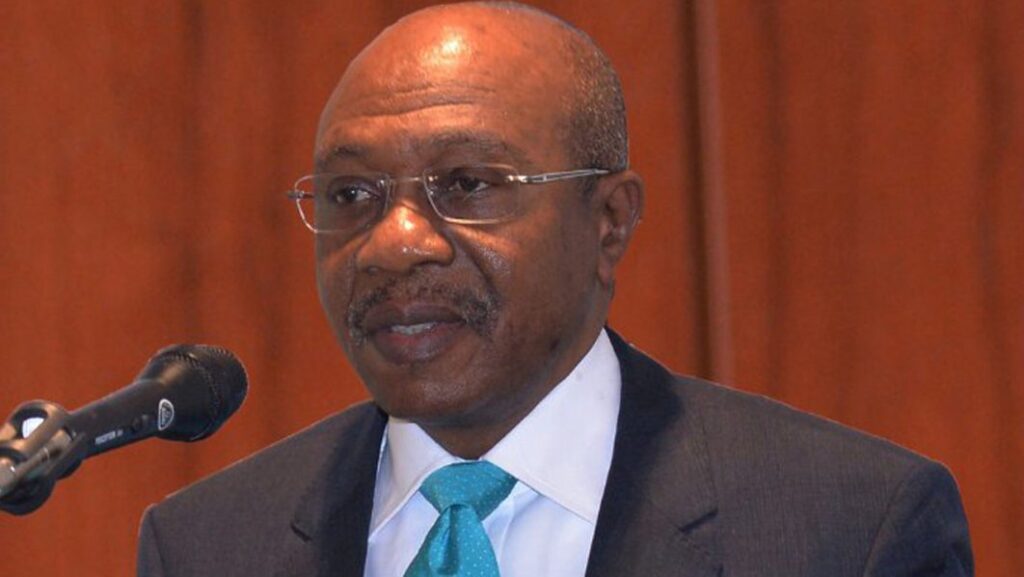The Central Bank Governor, Godwin Emefiele has been battling with a free falling on the Nigerian currency since 2015.
In spite of this, the Central Bank has continued to implement stringent monetary instruments that have not succeeded in delivering the much-needed rise to the devalued Naira
The CBN governor announced the ban of sales of foreign exchange to Bureau-de-Change, Tuesday, a drastic move that is considered to be capable of crippling the parallel market that has helped in sustaining the gaps in the foreign currency market which has always been dominated by multiple rates.
Recall that the Central Bank had introduced the rebate of N5 (Naira) for every $1(Dollar) of fund remitted to Nigeria through IMTOs licensed by the Central Bank of Nigeria.
Even though President Muhammadu Buhari made a promise to Nigerians that he will not devalue the naira, the currency has been constantly devalued and drastic actions by the CBN has continued to be unable to address speculators and high demand for the dollar, especially during the fall in the price of oil in the international market.
Hear Emefiele: ‘BDC are now agents that facilitate graft and corruption in the country. We cannot continue with the bad practices that are happening at the BDC market.’
‘Despite the history of Nigerian banks, the CBN has given the banks the sole right to deal in FX and promised to deal ruthlessly with Nigerian banks that deal with illegal BDCs’, he said.
Nigerians are constrained to look at the potential economic impact that this latest stunt by the CBN will have on the fall of the naira.
The CBN has been regulating the market by injecting foreign currency to defend the naira while the parallel market has been subjected to demand and supply. This policy has fuelled speculators who have been betting against the possible devaluation of the naira.
An Economist at the Department of Economics, University of Abuja, Dr Sessan Adeniji has described the Nigerian government as ‘doing trial and error’ with monetary policy.
He averred that the government will probably reverse the policy in a couple of months, saying that the shock will trigger inflation in the market.
‘The economy is already dollarized and this policy will reduce the circulation of dollar in the local economy, as demands for dollar will increase, hence, increase in prices of goods in the market.’
‘The response of prices will be instantaneous, particularly on items like electronics, because sellers will anticipate an increase in the cost of importing new items’, he said.
He maintained that the policy will lead to hoarding of foreign currencies as some BDC may be aware of the decision to ban sales to them, way before it was publicly announced.
‘Traders will anticipate an increase, in the short run, the commodity market will respond. This affects all the sectors on the immediate. People will react. The economy is dollarized already. The circulation will dwindle. Some are waiting for this policy to make profit. Some could be privy to this information. Hoarding will be an issue. This will be a big blow to the economy.’
‘Before you carry out any policy, it is expected you put a few things in place. Putting this policy out, what are the regulations put in place to regulate prices?’
‘This administration has been doing trial and error. In the long run—the economy is still oil-dependent. As you continue to import items, the demands for dollar and other currencies will continue to increase against the Naira.’
‘In the next couple of months, the policy will probably be reverted. The aftermath has not been well evaluated’, he concluded.
